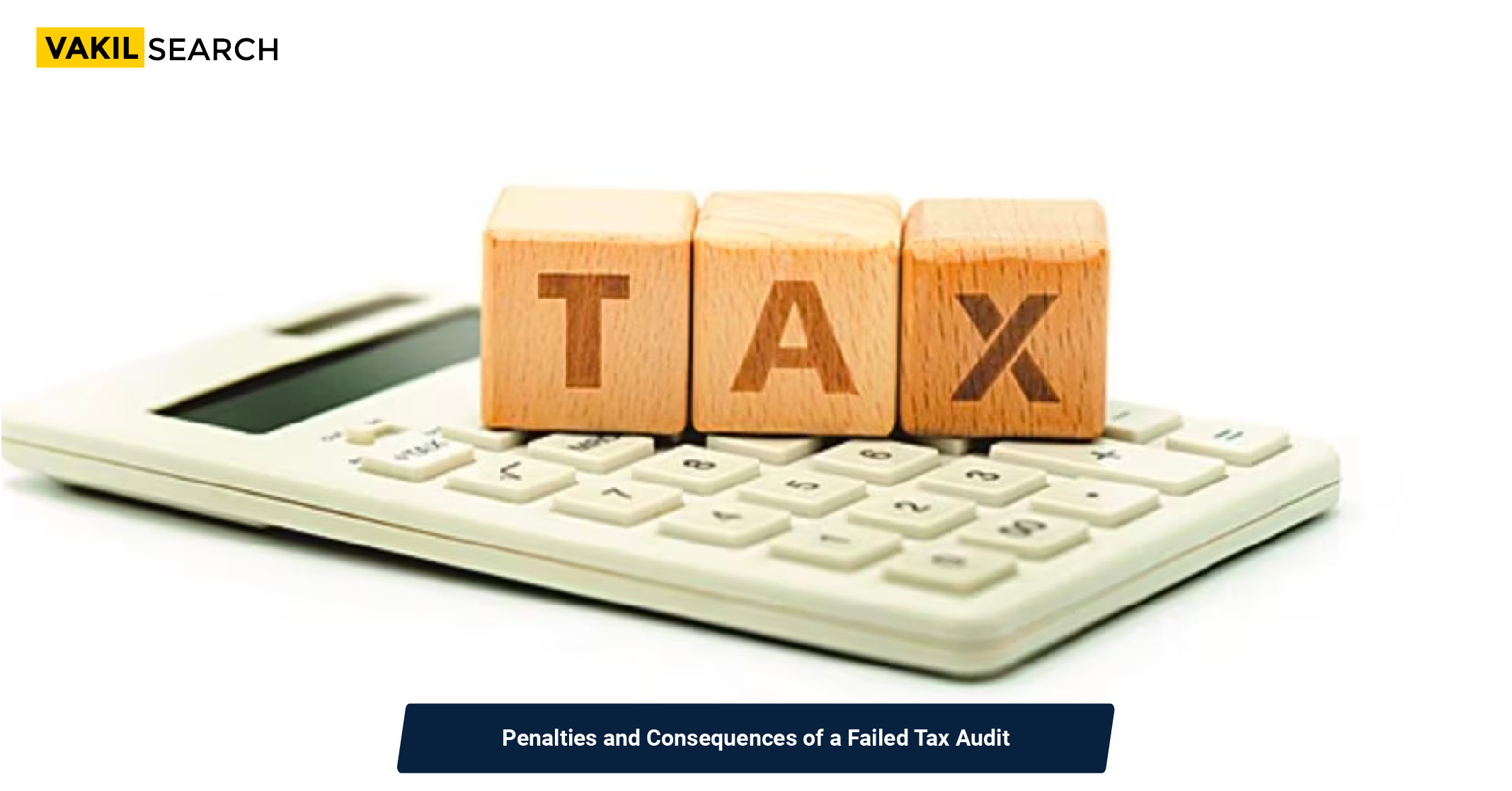Learn about the repercussions of a failed tax audit, including fines, legal actions, and financial strain. Stay informed to avoid pitfalls. Know the expert insights!
Compliance with the tax rules and regulations is paramount. A pivotal aspect of this compliance is the tax audit, a process wherein tax authorities scrutinise your financial records to ensure alignment with tax laws. While taxpayers typically strive for a seamless and successful audit, it is imperative to be aware of the penalties and ramifications that may arise in the event of an unfavourable outcome. We will examine the penalties and consequences of a failed tax audit in this extensive guide.
Penalties and Consequences of a Failed Tax Audit
- When a business or profession fails to undergo auditing in accordance with Section 44AB of the Income Tax Act, it triggers penalties under Section 271B
- Should there be a delay in completing the audit and submitting the report by the due date (on or before September 30), a penalty of 0.5% of the turnover, with a maximum cap of ₹1.5 lakh, becomes payable
- However, in cases where a genuine and valid reason exists for the delay or non-submission of the audit report, Section 273B provides relief from the imposition of any penalty.
Reasons for Failed Tax Audit
Delay Due to Tax Auditor’s Resignation
Depending on the tax laws and the relevant jurisdiction, different penalties may be assessed in this case. Typically, fines may be assessed for failing to select a new auditor within a predetermined window of time or for failing to present financial statements on time.
Delay Caused by Death or Physical Inability of the Partner Responsible for Accounts
Penalties may apply if there are statutory requirements for the timely submission of financial reports or tax returns. In some cases, provisions might exist to allow for extensions in such unfortunate circumstances, but these extensions would need to be applied for and approved.
Delay Caused by Labor Issues Such as Strikes or Lock-outs
Labour-related delays are often considered as force majeure events. Penalties may not apply directly in these situations, but businesses might still be expected to make efforts to mitigate delays, such as finding temporary solutions or seeking extensions where possible.
Delay Caused by Loss of Accounts Due to Theft or Fire, or Incidents that are not Under the Assessee’s Control
These unforeseen events could potentially lead to delays in financial reporting. Depending on tax laws and regulations, penalties might not be imposed in such cases if it can be demonstrated that the delay was genuinely beyond the control of the taxpayer. However, detailed documentation and communication with tax authorities may be necessary.
Natural Calamities
Natural catastrophes like earthquakes, hurricanes, or floods can seriously interfere with corporate operations and cause delays in reporting. In many countries, extensions may be granted in the event of a natural catastrophe, and fines may be cancelled or diminished if the delay is deemed to have been caused by such occurrences.
Only businesses or professions are subject to tax audits; individual income is not. The best practice for ensuring that the law is followed and that there is no tax fraud or evasion is to audit the accounts. In addition to making correct observations and reporting to the government, the chartered accountant in charge of the audit must make sure the client’s accounts are in order.
FAQs – Penalties and Consequences of a Failed Tax Audit
1. What are the consequences of a late tax audit filing?
Late tax audit filings can result in penalties, which typically include fines and interest charges.
2. Can I request an extension for a tax audit filing deadline?
Yes, many tax authorities allow for extensions. However, extensions must be requested in advance and may not always be granted. It's essential to apply early and provide valid reasons for the delay.
3. How are late tax audit penalties calculated?
Penalties are often calculated as a percentage of the tax owed, with additional daily interest charges until the audit is filed. The specific rates and calculation methods depend on local tax laws.
4. What if the delay is due to circumstances beyond my control, like illness or natural disasters?
Tax authorities may waive or reduce fines in some situations, but you must present supporting documentation. For giving relief in extraordinary circumstances, each jurisdiction has its own set of regulations.
5. Can late tax audit penalties be appealed or negotiated?
Yes, you can often appeal penalties through a formal process. However, success depends on the merits of your case and your ability to demonstrate a valid reason for the delay. Seeking professional advice can be beneficial in this regard.
Conclusion
The consequences of a late tax audit filing are a matter of significant concern for individuals and businesses alike. Late filings can lead to penalties, which typically include fines and accrued interest on the unpaid tax liability. These penalties can vary in severity and are subject to local tax regulations.
While extensions may be available, they must be requested in advance and may not always be granted. In cases where the delay is due to circumstances beyond one’s control, such as illness or natural disasters, some jurisdictions may consider waiving or reducing penalties, provided valid documentation is provided. Overall, staying informed about tax deadlines, seeking extensions when necessary, and complying with tax regulations are crucial to avoiding the costly repercussions of late tax audits. For tailor made advice get in touch with Vakilsearch for more information.
Read more,




